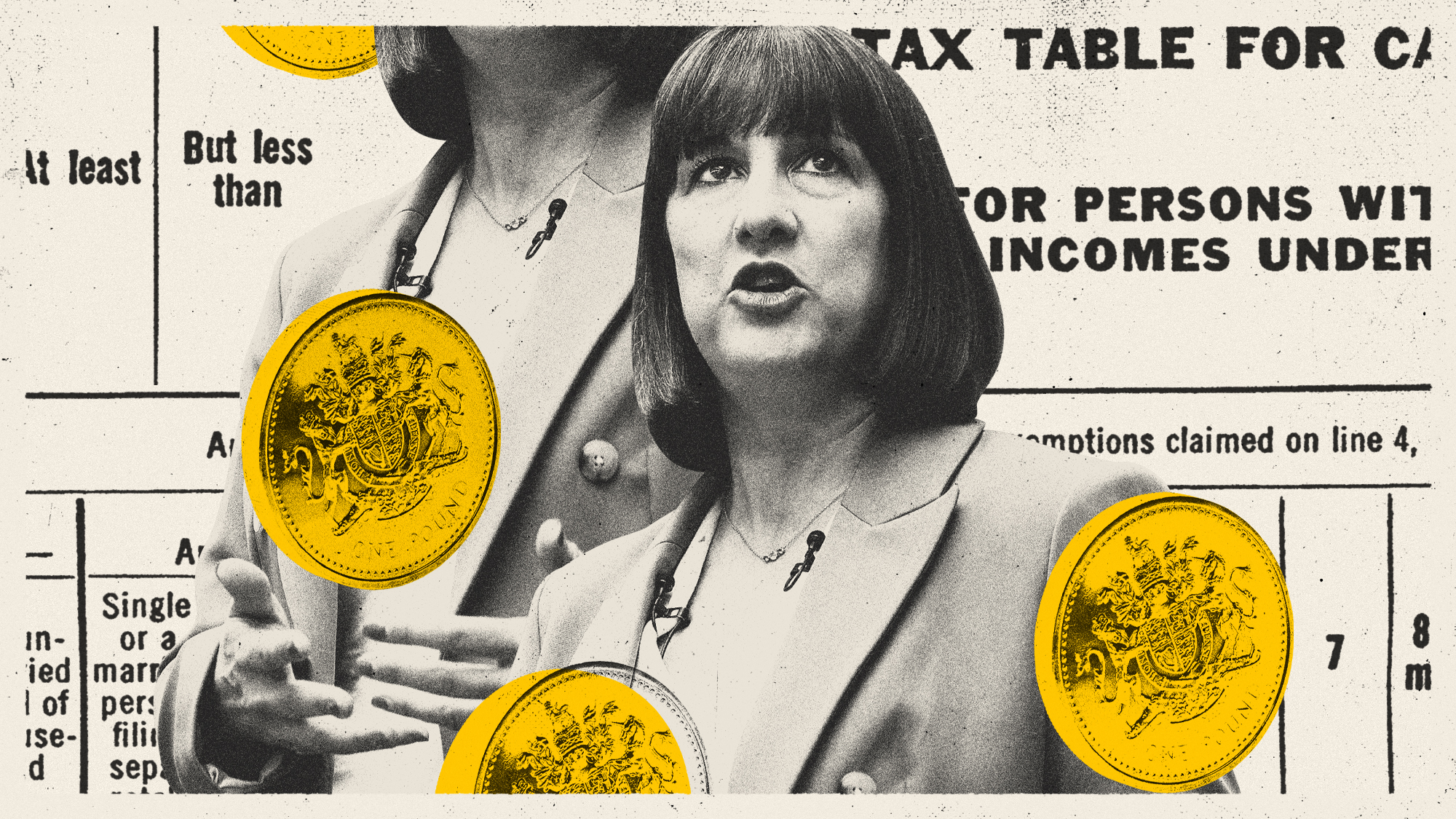Can Labour get away with tax rises?
The chancellor has said taxes will have to go up to fill a £22bn hole in public finances

A free daily email with the biggest news stories of the day – and the best features from TheWeek.com
You are now subscribed
Your newsletter sign-up was successful
Chancellor Rachel Reeves has said the government will have to raise some taxes in October's budget after months of speculation over Labour's stance on the issue.
Speaking on The News Agents podcast, Reeves declined to rule out increases on inheritance tax or capital gains tax, or carry out pensions changes, saying: "I think that we will have to increase taxes in the budget."
But the chancellor ruled out raising National Insurance, VAT or income tax – all of which Labour's manifesto promised not to increase during the current parliament.
The Week
Escape your echo chamber. Get the facts behind the news, plus analysis from multiple perspectives.

Sign up for The Week's Free Newsletters
From our morning news briefing to a weekly Good News Newsletter, get the best of The Week delivered directly to your inbox.
From our morning news briefing to a weekly Good News Newsletter, get the best of The Week delivered directly to your inbox.
What did the commentators say?
Reeves had already "strongly hinted" that there could be tax rises in the autumn budget in a speech to the Commons. In it, she announced cost-cutting measures she argued were necessary to fill the £22 billion "black hole" in the country's finances she said was left by the last government, said Sky News.
But the admission from Reeves was "like a fox-scented rag" for former chancellor Jeremy Hunt, who was "already enraged by the black hole attacks on his legacy", said Politico. Labour promised taxes would not go up "more than 50 times" during the election campaign, wrote Hunt in the Daily Mail. "Decent folk will be astonished at the speed at which Labour's promise has been broken."
The government promised it wouldn't put taxes up on "working people" and yet "millions who work, often very hard, are about to be clobbered", said Allister Heath in The Telegraph, "often for the sin of having built up too many assets to get on to the housing ladder, to look after children and families, or in readiness for old age". Many will feel that they have been "played by a brazenly dishonest Government that hides behind legalistic verbiage".
But in general "voters pay far less attention to tax than politicians think, whatever direction it moves", said The Economist. And tax rises are "swallowed far more easily than people in Westminster expect". Indeed, between 2019 and 2024 the Conservative government "raised taxes more than any parliament since the Second World War". If you had described this scenario to an MP in 2019, "they would have predicted civil unrest". But while voters "grumbled in focus groups", overall they "largely accepted it".
A free daily email with the biggest news stories of the day – and the best features from TheWeek.com
Labour's fiscal inheritance is "genuinely grim", said Jack Kessler in The London Evening Standard, but Reeves will have known the "broad brush strokes" of what she was inheriting. "It simply chose, for short-term political benefit, not to focus on how it would raise money to fix it during the campaign."
Yet the party does have the advantage that "voters preternaturally expect Labour – even when controlled by its right flank – to raise taxes". The "real challenge" for Labour "isn't public acceptance of higher taxation". It is "ensuring that the money is wisely spent to deliver noticeably improved public services", said Kessler. "Come the spring or summer of 2029, if NHS waiting lists are dramatically reduced, houses are being built and criminals sent to prison", Reeves' tough fiscal choices "will have been largely forgotten".
What next?
Reeves' comments to The News Agents podcast come after she announced a number of cost-saving measures designed to plug the £22 billion "black hole" she says was left in the public finances by the last government. As part of the measures Reeves scrapped several infrastructure projects, and announced the winter fuel allowance for pensioners would be means-tested.
The chancellor declined to comment on which taxes would be raised while speaking to the podcast, saying she would not "start to write a budget on this podcast".
But there has been plenty of speculation over which taxes could be targeted. Alongside VAT, National Insurance and income tax, Labour has also pledged not to raise corporation tax, the tax businesses pay on their profits, which currently stands at 25%.
Inheritance tax could be one of the "most likely to be changed", said Sky News. There could also be changes to capital gains, council tax, business rates and stamp duty, said the broadcaster.
The full details of the tax and spending changes are expected to be revealed during the autumn budget on 30 October.
Sorcha Bradley is a writer at The Week and a regular on “The Week Unwrapped” podcast. She worked at The Week magazine for a year and a half before taking up her current role with the digital team, where she mostly covers UK current affairs and politics. Before joining The Week, Sorcha worked at slow-news start-up Tortoise Media. She has also written for Sky News, The Sunday Times, the London Evening Standard and Grazia magazine, among other publications. She has a master’s in newspaper journalism from City, University of London, where she specialised in political journalism.